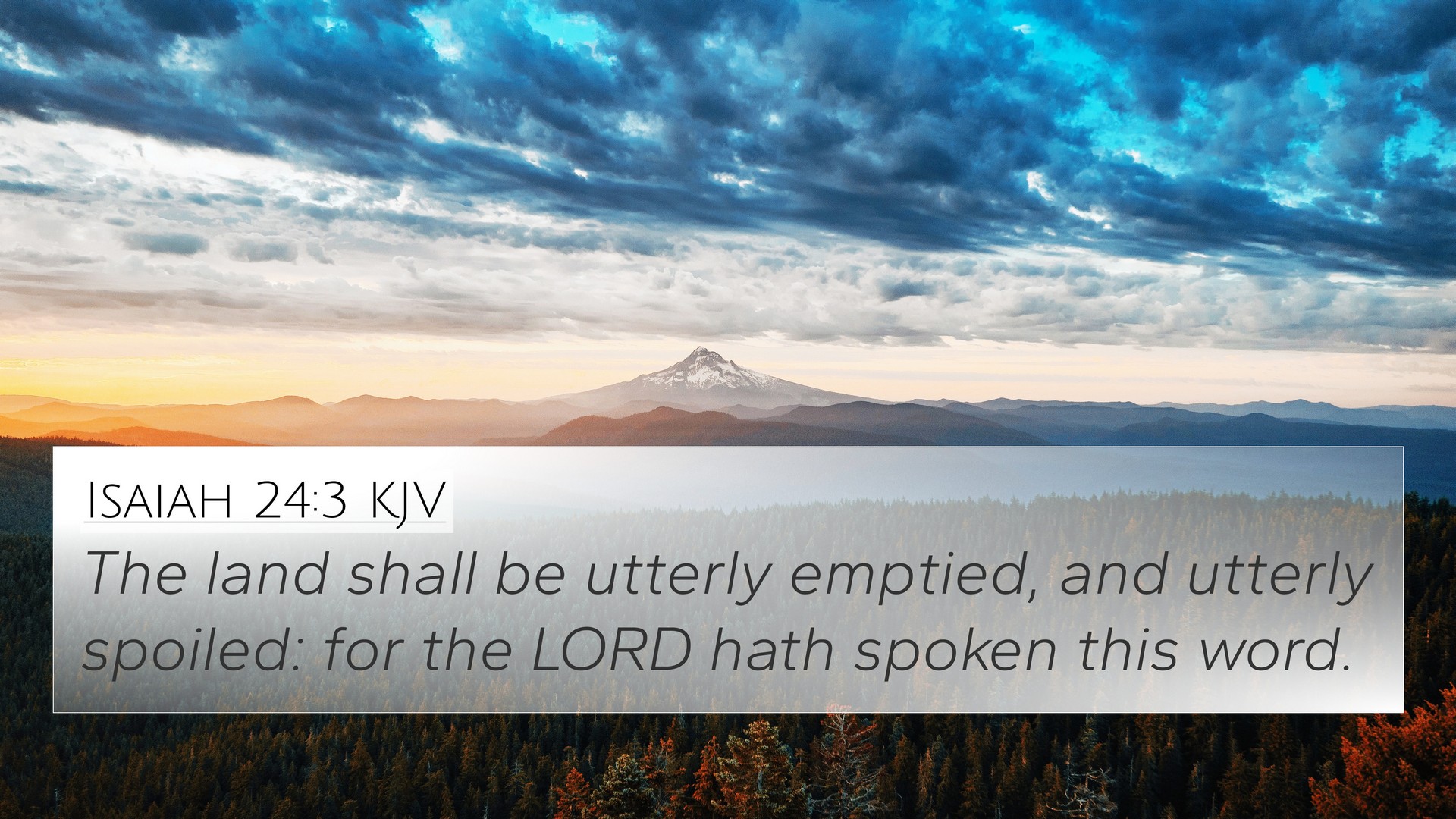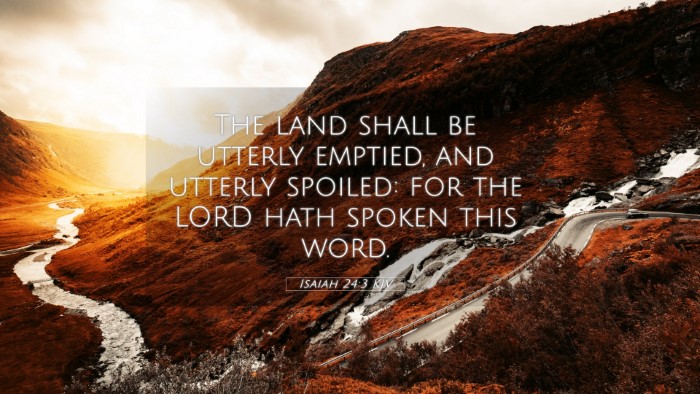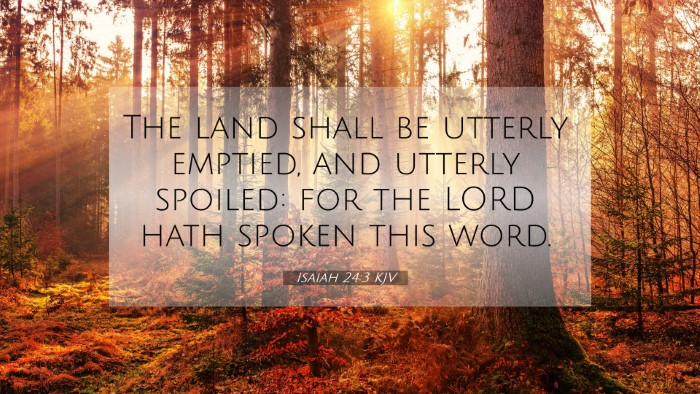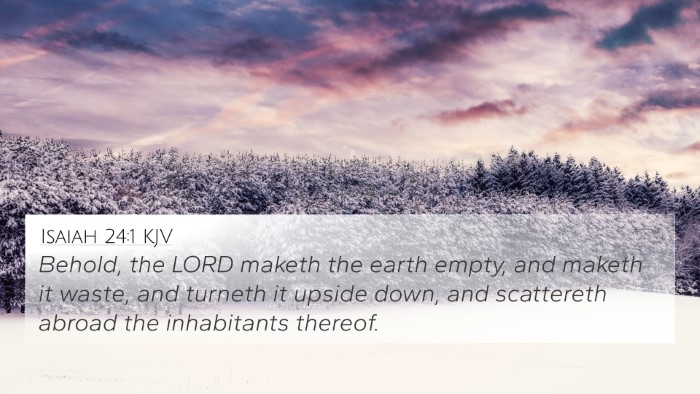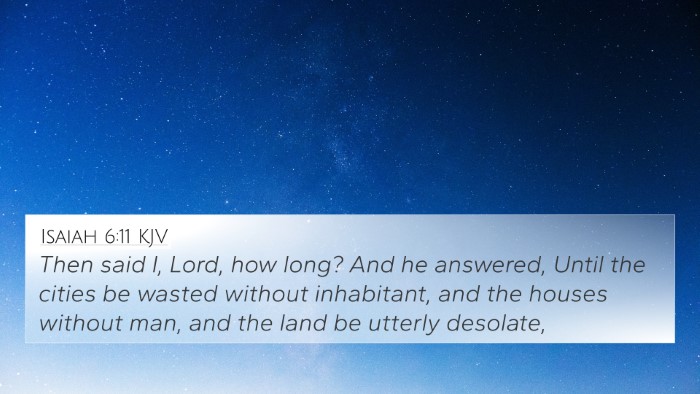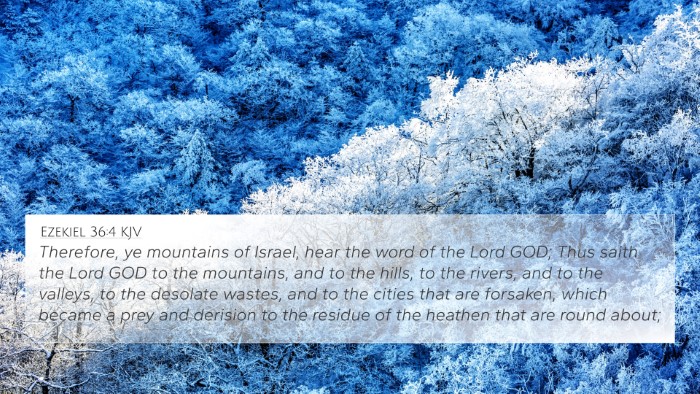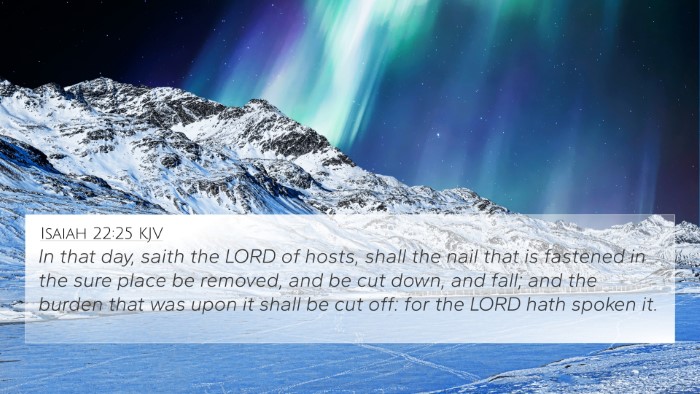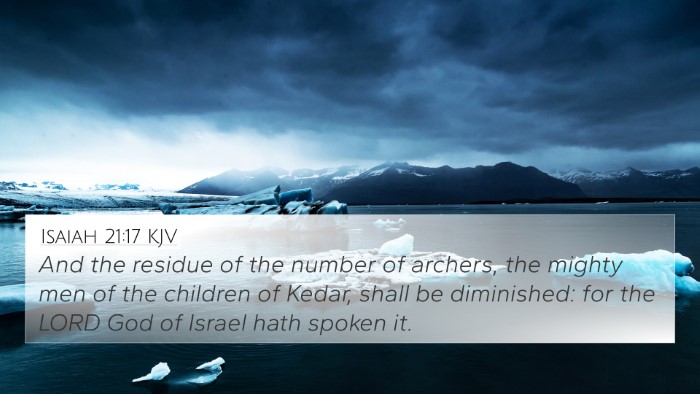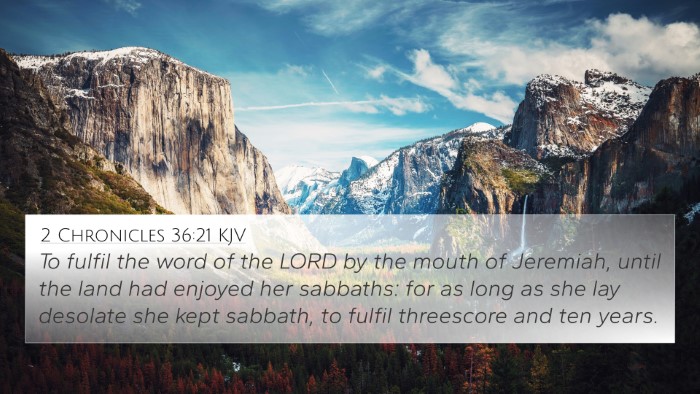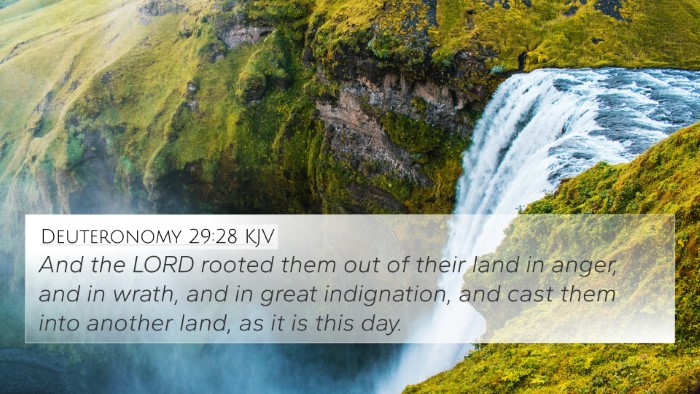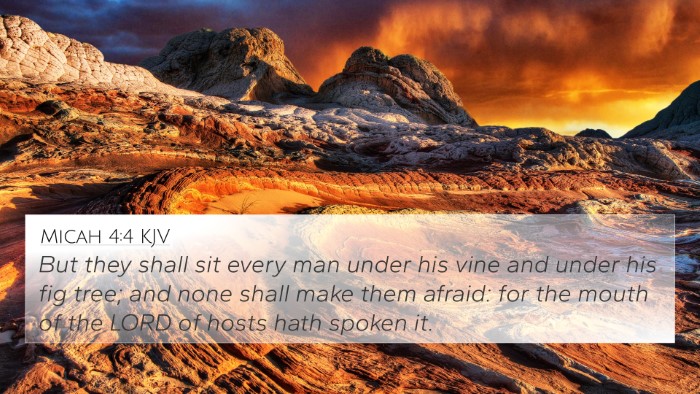Understanding Isaiah 24:3
Isaiah 24:3 states, "The land shall be utterly emptied, and utterly spoiled: for the LORD hath spoken this word." This verse emerges in a poignant context where the prophet Isaiah delivers messages concerning judgment upon the earth, particularly focused on how unfaithful humanity has acted in rebellion against God.
Contextual Analysis
The surrounding chapters describe a catastrophic vision where God’s wrath is expressed through environmental devastation and societal collapse. Here are key insights from notable biblical commentators:
- Matthew Henry: He emphasizes the gravity of God's declaration about the desolation of the land, linking it to the moral and spiritual decline of the people. He reflects that such a judgment indicates the seriousness with which God regards sin.
- Albert Barnes: Barnes highlights the inevitable fulfillment of this prophesied desolation, showing that God’s word must come to pass, underscoring God's omnipotence and the certainty of divine judgment upon nations that forsake His laws.
- Adam Clarke: Clarke notes that the devastation described serves as a warning and calls attention to the consequences of national and personal disobedience to God's will. He interprets the verse as reflecting God’s authority over creation.
Thematic Connections with Other Scriptures
Isaiah 24:3 resonates with various other Scriptures that echo similar themes of judgment and desolation. Here are 7-10 relevant cross-references:
- Revelation 6:12-14: Describes cosmic disturbances that reflect God’s judgment on the earth.
- Jeremiah 4:23-27: Illustrates a desolate land due to God’s fierce anger, paralleling the desolation in Isaiah.
- Ezekiel 30:3: Speaks of a day of the Lord and the devastation that follows, linking to the prophetic nature of Isaiah's message.
- Isaiah 13:9-11: Portrays the day of the Lord as one of fury where the earth will be made desolate.
- Matthew 24:29-30: In the New Testament, Jesus speaks of cosmic signs that will accompany His return, drawing a line from prophetic judgment in Isaiah.
- Zephaniah 1:2-3: God declares the complete destruction of all things on earth due to pervasive wickedness.
- Luke 21:25-26: Similar to Isaiah, highlights perplexities and signs in nature as indicators of divine judgment.
- Isaiah 1:7: "Your country is desolate, your cities are burned with fire," reflecting direct consequences of sinful living.
- Isaiah 9:19: Illustrates how wickedness consumes the land, analogous to the emptiness described in Isaiah 24:3.
The Importance of Cross-Referencing
Engaging in cross-referencing Biblical texts can significantly enhance understanding of Isaiah 24:3. By linking Bible scriptures, one can uncover the broader narrative of judgment throughout the scripture.
Tools for Cross-Referencing
Utilizing a Bible concordance can serve as an invaluable resource for finding cross-references. Here are a few ways to navigate and utilize cross-referencing effectively:
- Bible Cross-Reference Guide: Identifies verses that connect the themes of judgment.
- Cross-Reference Bible Study: Methodically examines related texts to gain a deeper understanding of the implications of each verse.
- Bible Reference Resources: Provides comprehensive lists of themes and connections across the scriptures.
- Interpreting Biblical Themes: Through cross-references, you can discern recurring themes, which deepen the meaning of the text.
Conclusion
The verse Isaiah 24:3 serves not only as a stark warning of God’s impending judgment but also invites readers into a deeper contemplative study through Bible verses that relate to each other. By examining the connections between this verse and others, one can appreciate the coherence and unity found in the Bible’s narrative regarding divine justice and mercy.
